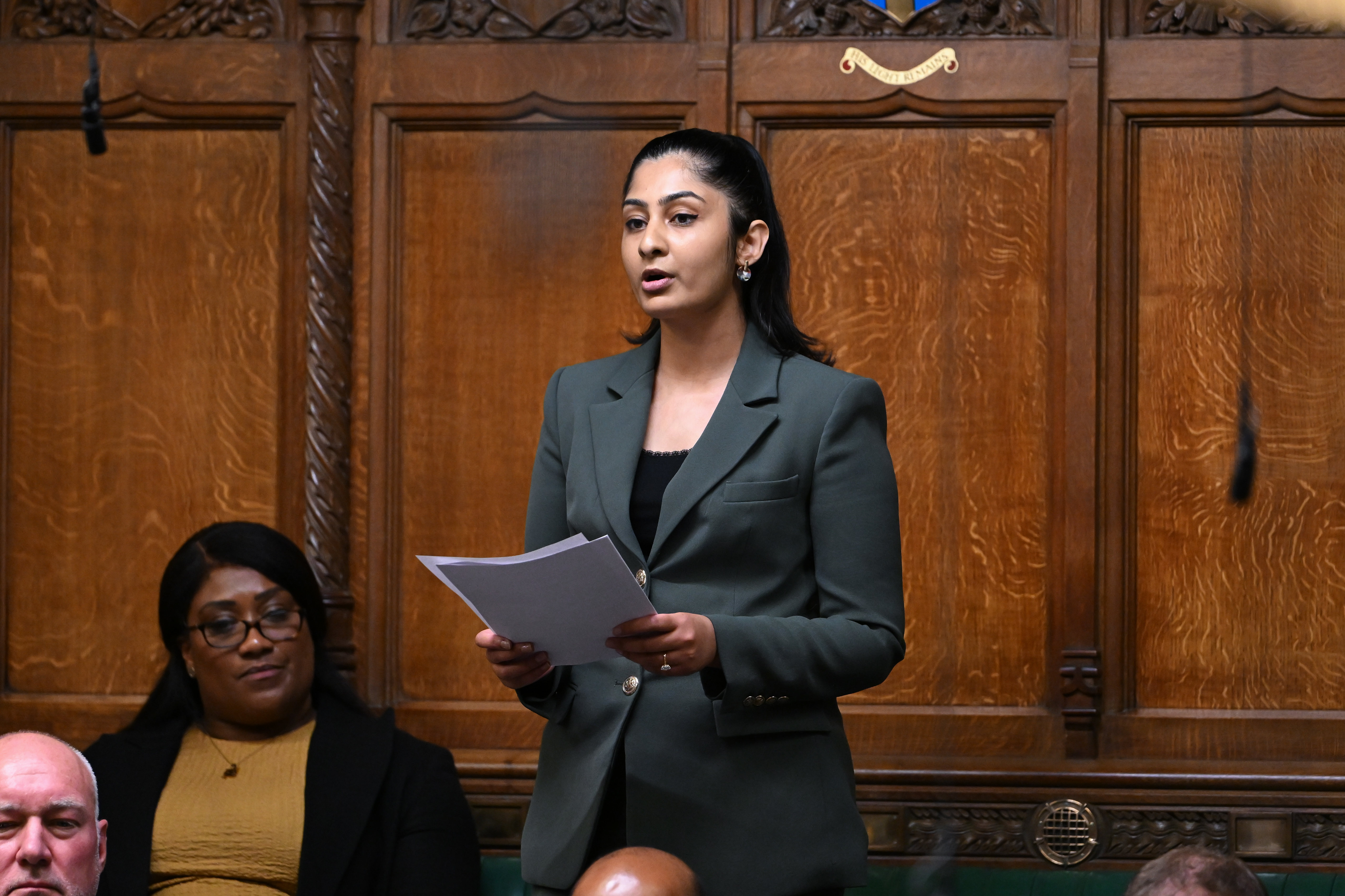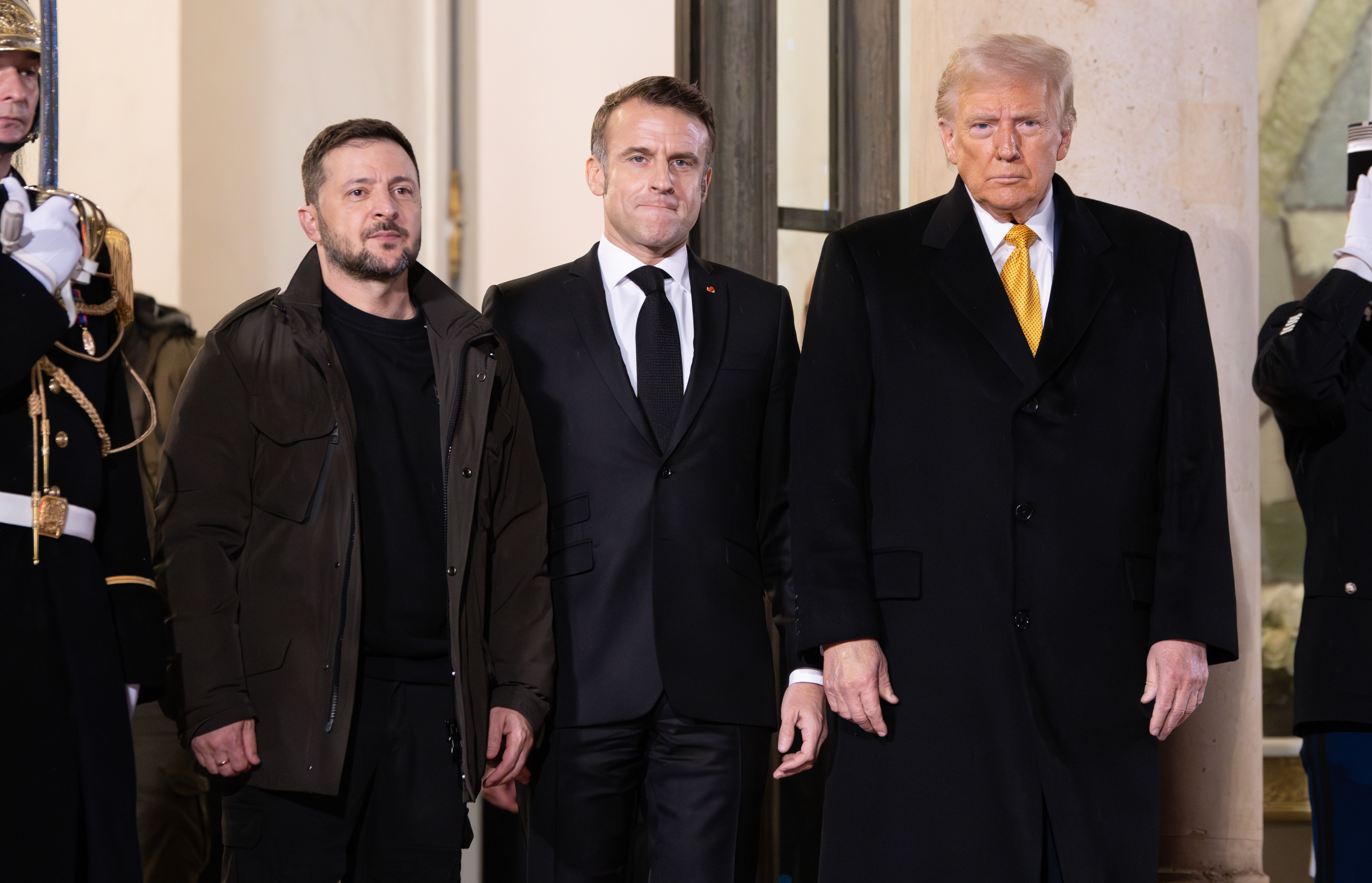A Crisis report uncovered tales of racism and discrimination and showed how Black and ethnic minority communities are overrepresented in the UK's homelessness population
Liam Geraghty
2 Jan 2025

Andrea Gilbert worked with Crisis to tell the story of homelessness and racism. Image: Supplied
Share
Last October Andrea Gilbert returned to her home after volunteering at a festival to find the doors locked and suddenly pushing her into homelessness.
Being made homeless is an experience affecting thousands of people in England and Wales – and Black people are over-represented in those figures.
A new report into racism and homelessness from Crisis, titled Where do I belong? Where is home?, reveals the racial inequality at the heart of the homelessness crisis.
The charity’s analysis of recent official government homelessness statistics shows that around 10% of households facing homelessness identified as Black between 2018 and 2023. Meanwhile, 20% of those seeking temporary accommodation identified as Black, while that was also true for nearly a quarter of people sleeping rough in London last year.
When compared to the 2021 Census, it shows that Black people make up just 4% of England’s population.
“I didn’t get access to the property for nine weeks so I wasn’t able to move to any other housing because I didn’t have access to my passport or any other clothing than what I went away with,” said Gilbert, from South London, who is currently sofa surfing with her mum and sister.
“It was really stressful. I ended up having to get some support with my mental health – I had to get some counselling sessions. I’m nowhere near getting housing than I was then to be honest.
“I am currently between family members. It’s really tough. I was living with my daughter before but she’s been put into temporary accommodation and I’ve been left to fend for myself. I’m not a priority as well so god knows when I’m going to get anywhere.”
Gilbert is far from alone.
Crisis’ report, co-produced with Black and ethnic minority communities with experience of homelessness, interviewed 58 people and found tales of racism and discrimination.
This report features direct, unfiltered quotations from people about their own experience, which refer to overt and implicit racism, including physical and verbal attacks and racial slurs, as well as sexual assault and drug and alcohol abuse.
The charity heard how racism affected people’s relationships with society, institutions and services and led to people being locked into poverty due to long-standing and deeply ingrained inequalities.
Testimonies spoke of being discriminated against by landlords, having negative experiences with the police and the criminal justice system and receiving inadequate medical care due to the colour of their skin.
Some participants described the isolating effects of racism and homelessness cutting them off from support groups too.
Francesca Albanese, executive director of policy and social change at Crisis, said: “These powerful testimonies once again show how people of colour are being repeatedly let down by our failure to tackle the institutional racism that exists in our housing and homelessness system.
“Ending homelessness is possible but to do that we need long-term systemic solutions that address inequality and remove the barriers that stop people from rebuilding their lives. This means scrapping hostile environment policies such as no recourse to public funds, which limits the help people can receive to find a home.
“As part of this, the forthcoming cross-departmental homelessness strategy must include improving access to social housing, as well as access to public services, so we can prevent homelessness amongst minoritised ethic communities and ensure they can leave it behind for good.”
For Gilbert, 36, who worked as a lived experience researcher on the report alongside Crisis, the interviews tallied with her own experiences of racism.
She told the Big Issue that she felt that her treatment would have been different if she wasn’t Black.
“It was really eye-opening to see some of the responses we got from the people we interviewed,” said Gilbert.
“The disparity shows how limited options are for Black families facing housing instability, pushing many into insecure short-term living arrangements.
“The lack of support I got. When I showed up to the council I had no phone, I had no way of communicating with anyone except for through a family member’s home. They ended up calling the wrong number and the person abused them down the phone so I was accused of doing that when I gave them my brother’s number.
“I feel like I was just left to the streets. I feel like I would have been treated differently [if I was white]. I’ve seen it for myself, people getting into accommodation within a month or up to three months where Black people can be there for years, sometimes in a overcrowded predicament.”
The government has been urged to include anti-racist measures in its upcoming homelessness strategy.
Tracey Bignall, director of policy and engagement at the Race Equality Foundation, said Crisis’ report “addresses a critical gap in understanding the challenges faced by Black, Asian, and minority ethnic communities, who are disproportionately affected by homelessness”.
Shabna Begum, CRO of Runnymede Trust, added: “Perhaps most telling is that not only is this disproportionality induced by institutional racism embedded in systems, but by active and intentional policies that push people of colour into the horrors of homelessness.”
But for Gilbert and others still facing homelessness going into 2025 like her, she would like to see a transformation in how the homelessness system treats people going forward.
“I’d like to see these barriers dismantled to see a housing system that prioritises dignity, justice and fair treatment for all residents,” said Gilbert.
“I’m just hoping I can find somewhere to live and find some stability because it’s all good me working and stuff but I haven’t got my own space and that’s the reality.
“I don’t want to have to keep on relying on people. You don’t want to fall out with the person and you don’t want to overstep the mark. How long can you stay at someone’s house also? You’ve got to think about all of these things because other people have their own lives to live as well. There are so many of us in that predicament.”
Ben Woolvin
BBC News, Devon
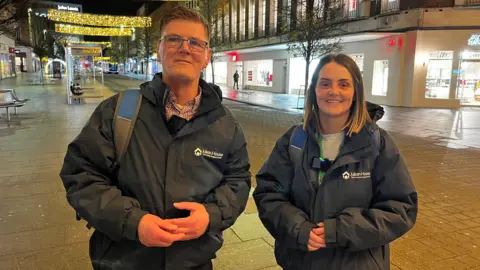
Jim McCarthy (left) and Sophie Wisdom (right) work for charity Julian House
A homelessness charity has warned funding for its work is at risk, but demand for its services remains high.
Julian House's Exeter-based team said it was having to rely on donations from the public and fundraising to keep running its projects.
It said any donations - whether it be a one-off or regular commitment - could help provide support in the city.
Jim McCarthy, the charity's service manager, said he expected the next set of figures would show the number of people sleeping rough on the streets had decreased, but he added it was still a "massive problem" in Exeter.
He said any drop in homelessness figures would be a "positive outcome" for the charity.
However, Mr McCarthy remained cautious about the scale of the job at hand the charity was facing: "It's still a massive problem and there's still a lot of work to do."
'Changing lives'
Sophie Wisdom, outreach worker on the rough sleeper prevention team, said the charity wanted to help homeless people get back on their feet.
Miss Wisdom said: "Even if it's just a tiny bit of help each day... you're making that day better.
"Hopefully you're helping and encouraging them to get on the pathway that's going to change their life."
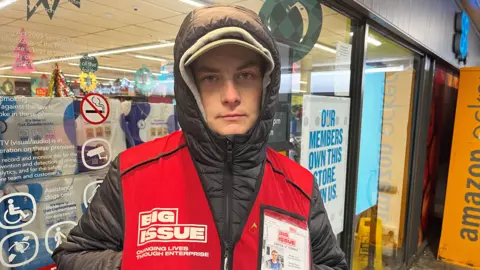
Former rough sleeper Alfie said Julian House helped him during tough times
Alfie, a former rough sleeper who spent a year on Exeter's streets before living in temporary accommodation for three years is about to move into a flat.
He said the help the Julian House charity provided was a vital resource to many.
Alfie said: "If it wasn't for Julian House, no-one would get a house, it's true."
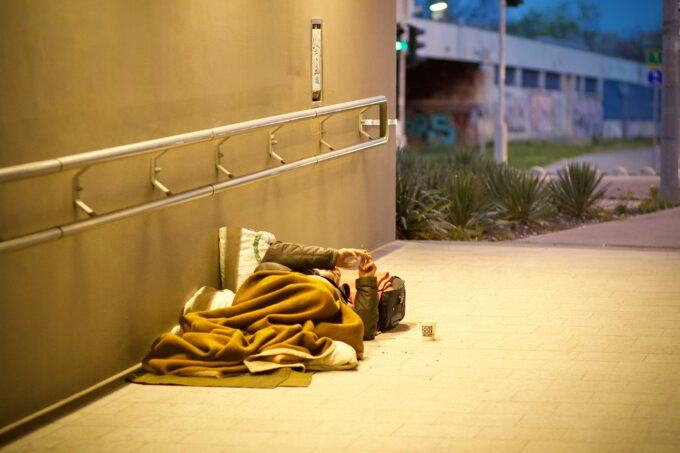
Image by Mihály Köles.
With just weeks to go before Donald Trump waltzes back into the White House, America has an additional problem on its hands.
The homelessness rate has surged, rising by 18% in 2024 compared to last year.
According to the Department of Housing and Urban Development’s annual assessment report, more than 770,000 people were experiencing homelessness on a single night in January. Nearly 150,000 children experienced homelessness on a single night in 2024, a whopping 33% increase from 2023.
The number of homeless older Americans also rose, with more than 140,000 people over the age of 55 going unhoused in the U.S. this year. Nearly half of these older Americans reported living in places not meant for humans.
“No American should face homelessness, and the Biden-Harris Administration is committed to ensuring every family has access to the affordable, safe and quality housing they deserve,” HUD Agency Head Adrianne Todman said in a statement.
But the question remains: Why did 2024 see a surge in homelessness?
According to some experts, there are several factors that contributed to this increase, such as rising housing costs, surging immigration, and the end of many COVID-19 relief programs.
According to a Pew Charitable Trusts study, rising rental prices are directly linked to an increase in homelessness in the United States.
In other words, while homelessness often has several contributing factors, including substance abuse, mental health, weather, social safety net strength, poverty, or economic conditions, none are as impactful as the role of high housing costs.
According to the reports’ authors, “There are still places in the U.S. where levels of homelessness are low, either because those places have low-cost housing readily available—such as Mississippi, where homelessness is 10 times lower than California—or because they have rapidly added housing and made a concerted effort to reduce the ranks of residents without homes. In Houston, the rate of homelessness is 19 times lower than it is in San Francisco, even though Houston’s population has grown more than San Francisco’s in the past decade. Looking at these markets helps to show how population growth generally does not explain growth in homelessness, except in instances where there is not a sufficient increase in the housing supply.”
Interestingly, and perhaps recognizing the direct link between housing and homelessness, Enterprise Community Partners (Enterprise) recently announced a $65 million grant from philanthropist MacKenzie Scott, billionaire Jeff Bezos’s ex-wife, to assist in providing affordable housing for the homeless.
Like Enterprise, the Center on Budget and Policy Priorities (CBPP) has conducted research into this important issue and reached the same conclusion, suggesting that policymakers can solve homelessness by scaling up proven solutions: rental assistance and supportive services.
In CBPP’s view, evidence shows that “we can solve homelessness if we address its primary driver: the gap between incomes and rent. Rental assistance, which closes that gap, has been proven highly effective at both rehousing people experiencing homelessness and preventing future homelessness.”
Part of the problem with the numbers we see is that cities receiving HUD assistance must report once annually and they do this in the winter when more people seek shelter.
What this means is that if the census were taken in the summer months, we would see vastly greater numbers as more people are willing to spend time on the streets in warmer weather.
Thankfully, the Biden administration made some progress, reducing homelessness not only among the general population, but among veterans as well.
The number of homeless veterans decreased nearly 12% during Biden’s term from 2023 to 2024, going from 35,000 to 32,800, a drop of about 7.5%, according to data released by HUD. This fall, the department announced veteran homelessness was at its lowest level ever since tracking began in 2009.
But with Trump coming into office, these numbers are bound to jump back up and we are likely to witness an even greater rise in homelessness in the next four years.






